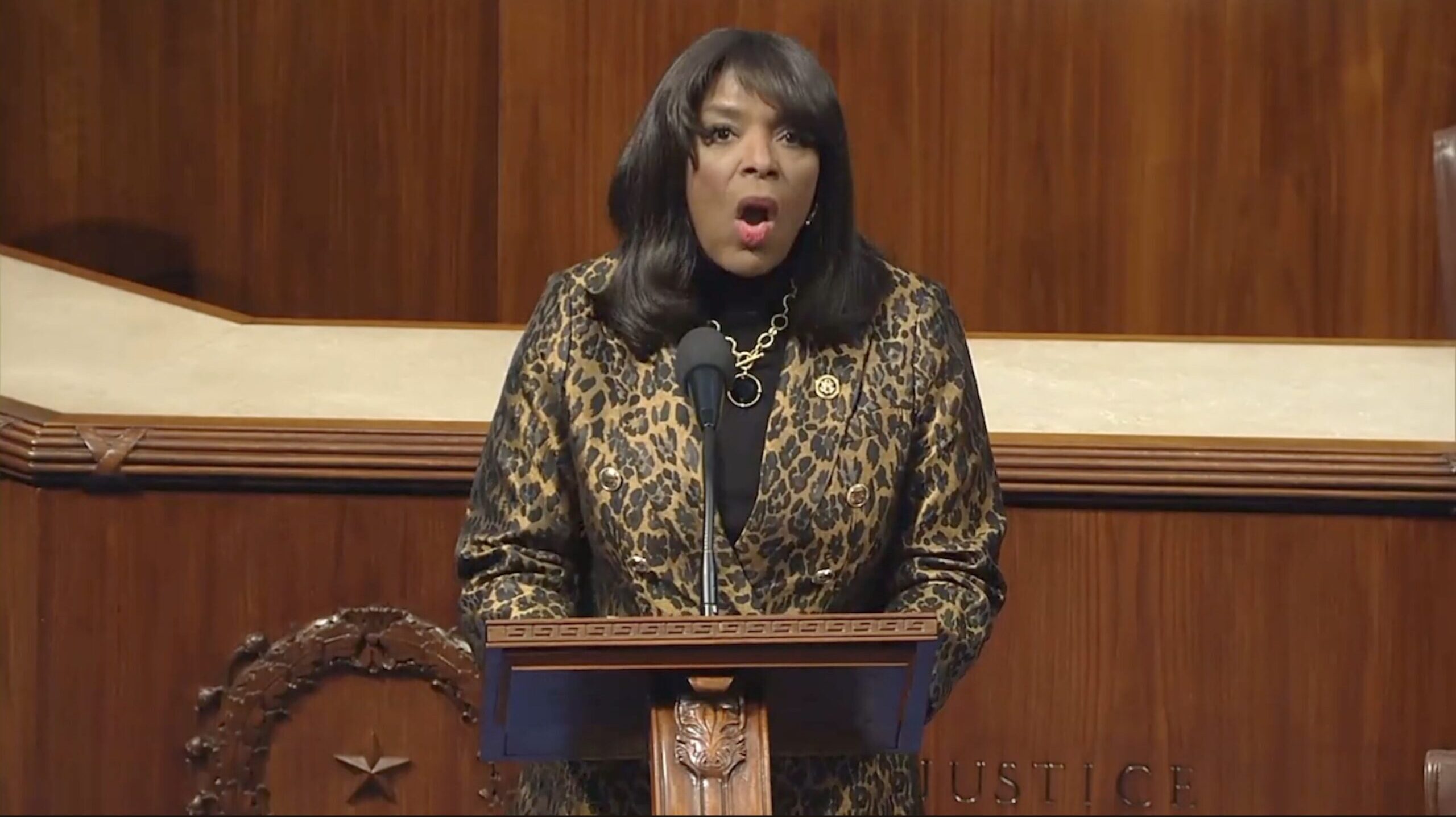|
Getting your Trinity Audio player ready...
|
Last Friday, U.S. Rep. Terri Sewell, AL-07, released the following statement on the three-year anniversary of the signing of President Biden’s landmark Bipartisan Infrastructure Law. The law makes the largest investment in America’s infrastructure since the construction of the interstate highway system. Projects funded by the law are revitalizing Alabama’s aging infrastructure and benefiting communities in every corner of the state.
Rep. Sewell was the only member of Alabama’s congressional delegation to vote in favor of the Bipartisan Infrastructure Law.
“I voted for the Bipartisan Infrastructure Law because it promised to make transformational improvements to Alabama’s infrastructure and reverse decades of disinvestment,” said Rep. Sewell. “Three years later, we are delivering on that promise. Across Alabama, we are seeing billions of dollars pour into our communities to fix our roads, bridges, airports, and transit systems, all while creating good-paying jobs. And thanks to the provisions we negotiated, billions more are on the way to fix our water and sewer systems, expand internet access, and clean up pollution.”
“I was the only member of Alabama’s congressional delegation to vote in favor of the Bipartisan Infrastructure Law,” continued Sewell. “But as my dad always said, it is okay to stand alone if you are standing up for what you believe.”
Due to the Bipartisan Infrastructure Law, billions in unprecedented investments have already been announced to revitalize communities in Alabama:
- Roads, Bridges, and Transportation: $4.8 billion has been announced for transportation investments in roads, bridges, public transit, ports and airports, as well as electric school and transit buses, EV charging, and more.
- Water and Sewer Infrastructure: $496.5 million has been announced to provide clean water across Alabama and improve water infrastructure. This includes $136 million dedicated to lead pipe and service line replacement. It is part of the largest investment in water infrastructure in American history.
- Internet Access: $2.1 billion in funding from the Biden Administration has been announced to provide affordable, reliable high-speed internet to everyone in Alabama. Additionally, 413,700 Alabama households saved money on their monthly internet bills through the Affordable Connectivity Program before Congressional Republicans blocked its renewal.
Below are just a few examples of the many projects underway in Alabama’s 7th Congressional District because of the Bipartisan Infrastructure Law:
- Jefferson County School District Energy Upgrades: The Department of Energy awarded $15 million to the Jefferson County School District to provide energy efficient updates and health improvements at seven schools. This investment will help school communities make energy upgrades that will lower utilities costs, improve indoor air quality, and foster healthier learning environments.
- Reconnecting Birmingham’s 4th Avenue Business District: The Department of Transportation awarded $15 million to the City of Birmingham, Alabama, to redesign Birmingham’s Black Main Street to convert the one-way road to a two-way road, reconnecting downtown neighborhoods and businesses that were divided by the construction of Interstate 65 in the 1960s. The project encompasses the Historic 4th Avenue Business District, a once thriving hub of Black businesses and community in Birmingham.
- Alleviating Blocked Railroad Crossings in Birmingham: The Department of Transportation awarded $8 million to the City of Birmingham to alleviate dangerous blocked railroad crossings. The project targets two segments of Norfolk Southern’s railway line and will help develop plans for various track, bridge, signal and road realignments to reduce blocked crossings and improve community safety and access to schools and residential areas, including the roads leading in and out of Harris Homes.
- Improving the Birmingham Civil Rights Crossroads: The Department of Transportation awarded $21.7 million to the City of Birmingham to redevelop approximately 2.5 miles of road with a complete streets approach, including a two-way cycle track, improved ADA access, sidewalks, and other universal design elements. The project aims to improve safety by providing natural traffic calming services and intersection improvements resulting in enhanced visibility of pedestrians and cyclists.
- Tuscaloosa Bus Upgrades: The Department of Transportation awarded $7,890,065 to the University of Alabama to replace diesel buses with new electric buses, buy charging equipment, and train maintenance workers to support the new electric bus fleet. The project will ensure continued service reliability, maintain a state of good repair, improve air quality, and advance environmental justice in the Tuscaloosa community.
- Improving Rail Safety in the Black Belt: The Department of Transportation awarded $15.8 million to the Alabama Department of Transportation (ALDOT) for track and bridge improvements in the Black Belt and Central Alabama.
- Environmental Cleanup at Craig Field Airport and Industrial Authority: The Environmental Protection Agency awarded the Craig Field Airport and Industrial Authority with $682,000 to clean up the Craig Field Flight Line site on Craig Industrial Parkway near the City of Selma. The cleanup site was part of the former 1,790-acre Craig Air Force Base, which operated from 1940 through 1977. Site contaminants include volatile organic compounds in soil vapors, heavy metals in soil and building structures, and groundwater contaminants. The funding will accelerate clean-up efforts of contaminated sites to build safer, more resilient communities.
- Lead Pipe Replacement in Selma: $15 million has been provided to Selma to replace 800 lead service lines, some of which are more than 100 years old. These improvements will eliminate the potential public health risks associated with lead drinking water exposure.
- Clean School Buses in Selma: The City of Selma was selected to receive $1.7 million in rebate funding to purchase five clean school buses. It is part of a $5 billion investment to transform the nation’s fleet of school buses.
- Improving the Selma-to-Montgomery Trail: The City of Montgomery will receive $36 million in funding to reconnect the West Montgomery residents located on the Selma-to-Montgomery Trail to opportunities and access by addressing poor social determinants of health that exist because of segregation, redlining, and construction of Interstates 65 and 85.
- Montgomery Bus System Upgrades: The Department of Transportation awarded $19.6 million to the City of Montgomery to buy new battery electric buses, charging equipment, and initiate a workforce training program.






















































